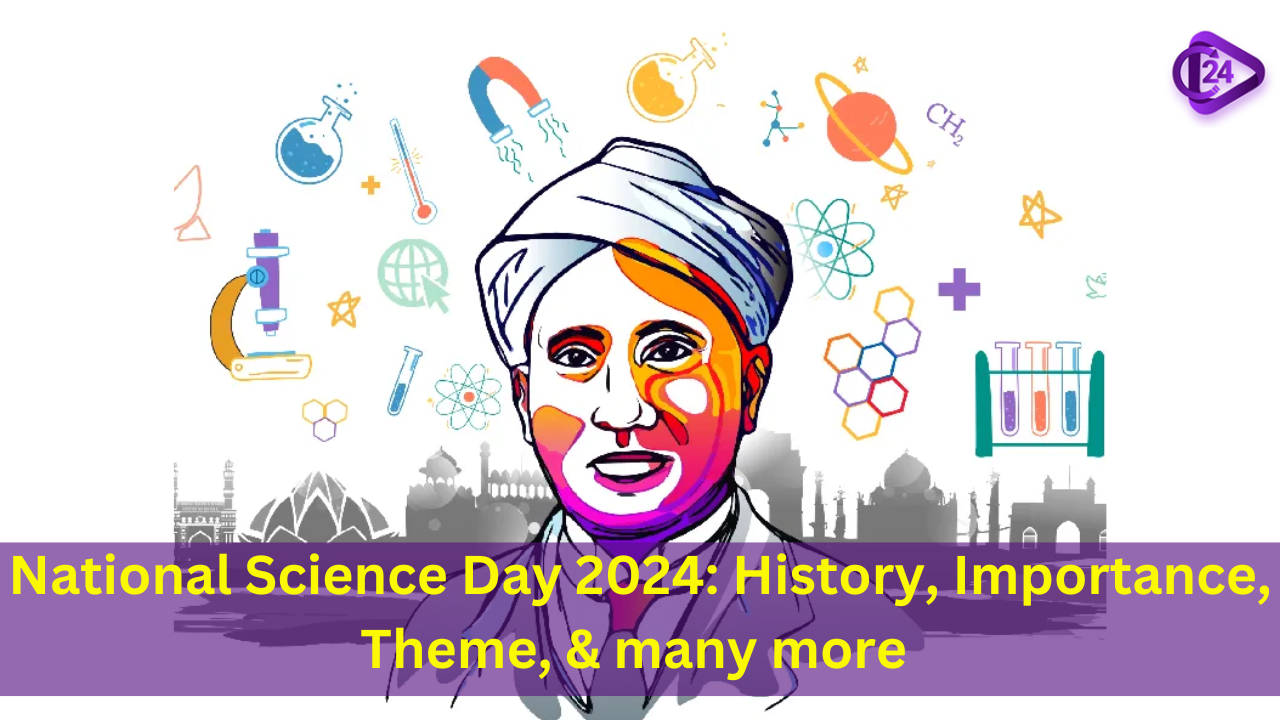Daily Quizzes
Mock Tests
No tests attempted yet.
Select Category
National Science Day 2024: History, Importance, Theme, & many more

National Science Day is observed annually on February 28, to celebrate the scientific achievements and discoveries that have changed our world. On February 6, 2024, the Union Minister of State for Science & Technology, Dr. Jitendra Singh announced the theme for National Science Day 2024 i.e. 'Indigenous Technologies for Viksit Bharat', which emphasizes the commitment of India towards innovation and self-reliance in science and technology. National Science Day is observed to celebrate the discovery of the ‘Raman Effect’, discovered by Sir C.V. Raman. For this discovery, he was awarded the Nobel Prize in 1930.
National Science Day 2024: History
-
In 1986, the National Council for Science and Technology Communication (NCSTC) recommended the Central Government to designate February 28 as National Science Day.
-
The NCSTC requested for this day (February 28), as on this date, a renowned Indian scientist, Sir C.V. Raman discovered the 'Raman Effect' in 1928.
-
Later, in 1930, he was awarded the prestigious Nobel Prize in Physics for his discovery of the 'Raman Effect'.
-
The first National Science Day was celebrated on 28th February 1987.
-
On this day, the National Council for Science and Technology Communication (NCSTC) also announced National Science Popularization Awards to recognise individuals for their contributions in the field of science and communication.
National Science Day 2024: Importance
-
The National Science Day (NSD) is celebrated to recognize the discovery of the Raman Effect by Sir C V Raman on February 28, 1928.
-
This day also displays all activities, efforts, and achievements in the field of science & technology and provides an opportunity for those Indian citizens, who have an interest in science.
National Science Day 2024: Theme
-
On February 6, 2024, the Union Minister of State for Science & Technology, Dr. Jitendra Singh unveiled the theme for National Science Day 2024, ‘'Indigenous Technologies for Viksit Bharat'.
-
This theme emphasizes the commitment of India towards innovation and self-reliance in science and technology.
-
From 1999, the National Science Day has been celebrated with specific themes, which are as follows:
List of National Science Day themes:
|
Year |
Theme |
|
1999 |
Our Changing Earth |
|
2000 |
Recreating Interest in Basic Science |
|
2001 |
Information Technology for Science Education |
|
2002 |
Wealth From Waste |
|
2003 |
50 years of DNA & 25 years of IVF – The Blueprint of Life |
|
2004 |
Encouraging Scientific Awareness in Community |
|
2005 |
Celebrating Physics |
|
2006 |
Nurture Nature for our future |
|
2007 |
More Crop Per Drop |
|
2008 |
Understanding the Planet Earth |
|
2009 |
Expanding Horizons of Science |
|
2010 |
Gender Equity, Science & Technology for Sustainable Development |
|
2011 |
Chemistry in Daily Life |
|
2012 |
Clean Energy Options and Nuclear Safety |
|
2013 |
Genetically Modified Crops and Food Security |
|
2014 |
Fostering Scientific Temper |
|
2015 |
Science for Nation Building |
|
2016 |
Scientific Issues for Development of the Nation |
|
2017 |
Science and Technology for Specially Abled Persons |
|
2018 |
Science and Technology for a sustainable future |
|
2019 |
Science for the People, and the People for Science |
|
2020 |
Women in Science |
|
2021 |
Future of STI: Impact on Education Skills and Work |
|
2022 |
Integrated Approach in S&T for Sustainable Future |
|
2023 |
Global Science for Global Wellbeing |
National Science Day 2024: Collaboration
The theme for the National Science Day for 2024 is the collaborative efforts of the Department of Science and Technology (DST), the Department of Biotechnology (DBT), and the Council of Scientific and Industrial Research (CSIR).
India's Scientific Glory in 2023
- India’s Chanrayaan-3 on the South Pole region of the Moon.
- COVID Vaccine Development by India.
- CSIR launched Aroma Mission which aims to increase the income of the farmers through the cultivation of high-value and high-demand aromatic crops by about Rs. 30,000 to 60,000/ha/year.
- Launch of Aditya L1, to study sun climate.
What is the Raman Effect?
-
In 1930, Physicist CV Raman won the Nobel Prize in Physics for his discovery of the Raman Effect.
-
The Raman Effect is an inelastic scattering of light by matter, which results in a shift in the frequency of the scattered light.
-
The Raman Effect forms the basis for Raman spectroscopy.
-
It is used by chemists and physicists to gain information about materials.
-
The study of the interaction between matter and electromagnetic radiation is known as Spectroscopy.
Other Indian Nobel Laureates in the Field of Science:
|
Nobel Laureate |
Subject |
Topic |
Year |
|
Har Gobind Khurana |
Medicine |
Elucidation of the genetic code and its function in protein synthesis. |
1968 |
|
Subrahmanyan Chandrasekhar |
Physics |
Physical processes of importance to the structure and evolution of stars. |
1983 |
|
Venkatraman Ramakrishnan |
Chemistry |
Structure and function of the ribosome. |
2009 |
National Science Day 2024: FAQ
Q1. National Science Day is observed on which date?
Ans: National Science Day is observed annually on February 28.
Q2. What is the theme for the National Science Day 2024?
Ans: The theme for National Science Day 2024 is 'Indigenous Technologies for Viksit Bharat’.
Q3. Why National Science Day is observed on February 28?
Ans: The NCSTC requested to celebrate National Science Day on February 28, as on this date, renowned Indian Physicist, Sir C.V. Raman discovered the 'Raman Effect' in 1928.
Q4. What are the scientific glories of India in 2023?
Ans: 1. India’s Chanrayaan-3 on the South Pole region of the Moon; COVID Vaccine development by India; CSIR launched Aroma Mission which aims to increase the income of the farmers through the cultivation of high-value and high-demand aromatic crops by about Rs. 30,000 to 60,000/ha/year.; and Launch of Aditya L1, to study sun climate.




